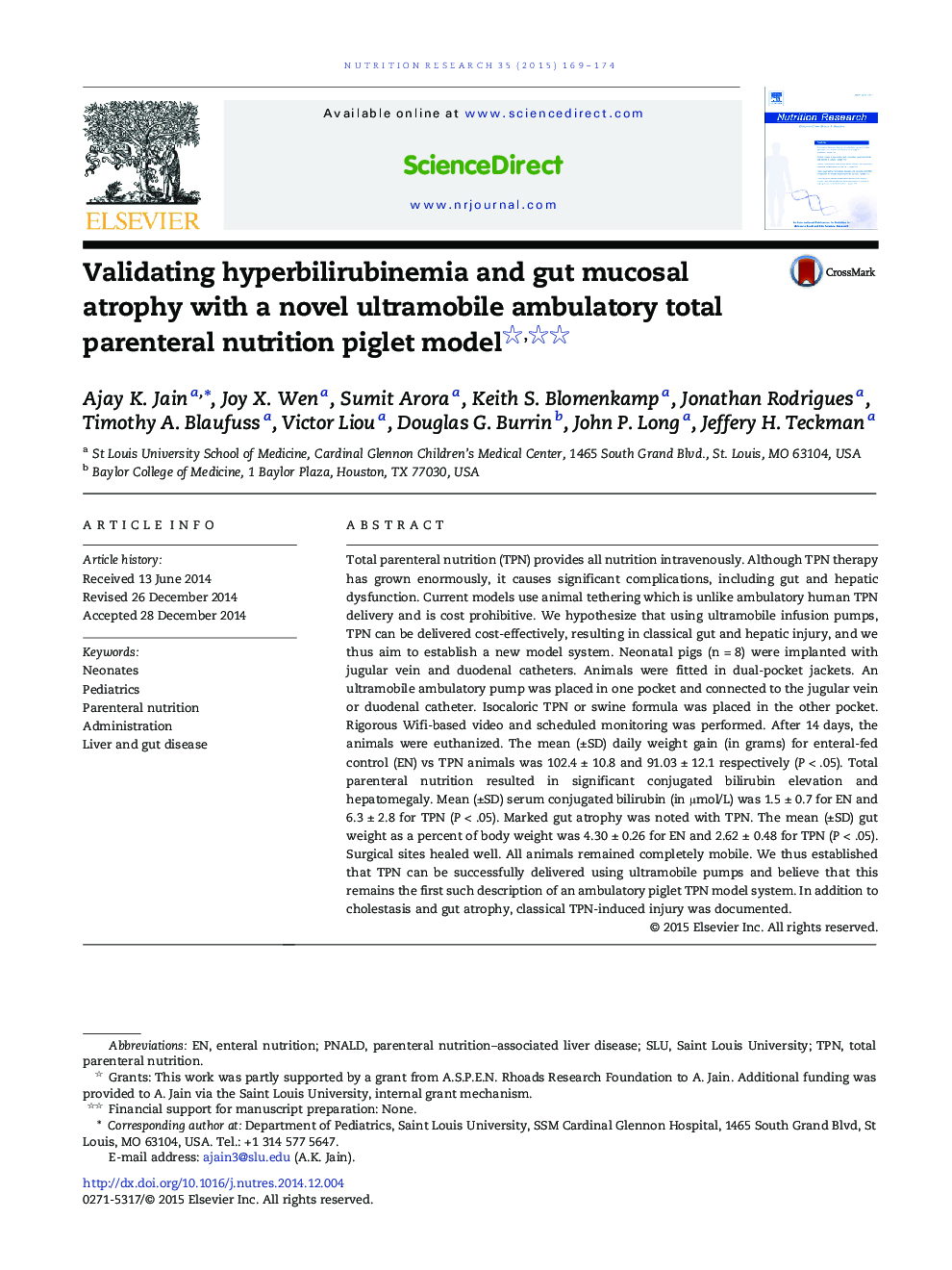| Article ID | Journal | Published Year | Pages | File Type |
|---|---|---|---|---|
| 5904545 | Nutrition Research | 2015 | 6 Pages |
Abstract
Total parenteral nutrition (TPN) provides all nutrition intravenously. Although TPN therapy has grown enormously, it causes significant complications, including gut and hepatic dysfunction. Current models use animal tethering which is unlike ambulatory human TPN delivery and is cost prohibitive. We hypothesize that using ultramobile infusion pumps, TPN can be delivered cost-effectively, resulting in classical gut and hepatic injury, and we thus aim to establish a new model system. Neonatal pigs (n = 8) were implanted with jugular vein and duodenal catheters. Animals were fitted in dual-pocket jackets. An ultramobile ambulatory pump was placed in one pocket and connected to the jugular vein or duodenal catheter. Isocaloric TPN or swine formula was placed in the other pocket. Rigorous Wifi-based video and scheduled monitoring was performed. After 14 days, the animals were euthanized. The mean (±SD) daily weight gain (in grams) for enteral-fed control (EN) vs TPN animals was 102.4 ± 10.8 and 91.03 ± 12.1 respectively (P < .05). Total parenteral nutrition resulted in significant conjugated bilirubin elevation and hepatomegaly. Mean (±SD) serum conjugated bilirubin (in μmol/L) was 1.5 ± 0.7 for EN and 6.3 ± 2.8 for TPN (P < .05). Marked gut atrophy was noted with TPN. The mean (±SD) gut weight as a percent of body weight was 4.30 ± 0.26 for EN and 2.62 ± 0.48 for TPN (P < .05). Surgical sites healed well. All animals remained completely mobile. We thus established that TPN can be successfully delivered using ultramobile pumps and believe that this remains the first such description of an ambulatory piglet TPN model system. In addition to cholestasis and gut atrophy, classical TPN-induced injury was documented.
Keywords
Related Topics
Life Sciences
Biochemistry, Genetics and Molecular Biology
Endocrinology
Authors
Ajay K. Jain, Joy X. Wen, Sumit Arora, Keith S. Blomenkamp, Jonathan Rodrigues, Timothy A. Blaufuss, Victor Liou, Douglas G. Burrin, John P. Long, Jeffery H. Teckman,
